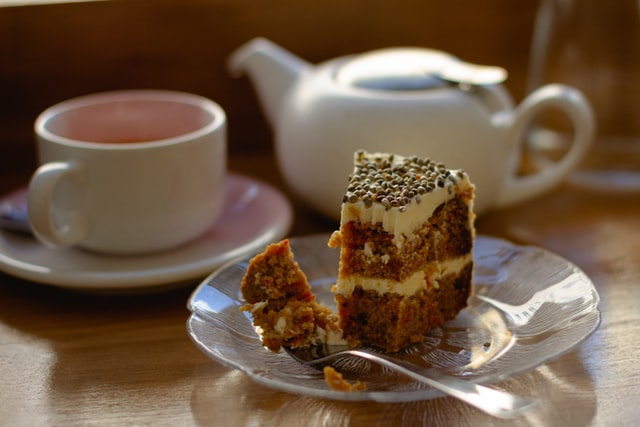Podcast 106 B2 - Polite language in English
Are the English more polite than people from other countries?
People say that about the English, don't they? The English are very polite! Some people say we're too polite. Too many 'please' and 'thank yous'! It's true that in English there are a lot of different ways to express politeness. I don't think this means the English are more polite than people from other countries. It just means there is a language protocol that native speakers from the UK expect from others in dialogue - especially in formal and semi-formal situations. In this podcast, I'm going to look at being polite in English and those wonderful modal auxiliaries we can use to speak to strangers or people we don't know well in a suitably polite way. This podcast is for students at a good B1 and B2 levels of English. So let's go...!
Story starts at 7:02
I thought the best way I can talk about how to ask for permission in English is to remember typical situations I can remember and the type of dialogue used. In other words, I'm going to give you short dialogues with suitable language so you can listen and assess the content for yourselves.
Situation 1 - in a bookshop

You walk into a quiet bookshop in the high street. The shop assistant is putting some books onto the shelves and doesn't see you. Notice the following as you listen:
1) How we get someone's attention in a polite way.
2) The way we use past
tense to sound more polite and less direct.
3) Short answers repeat the auxiliary.
4)
The use of auxiliary 'do' in affirmative sentences.
5) Use of 'actually'
for politeness.
6) Use of 'just' as in 'I'd just like to browse' to make
your action sound less of a problem.
7) Notice the use of 'can' or 'could'
in questions and that it's probably not true that 'could' is more polite than
'can'. It's the intonation that is important.
8) Use of modals and indirect
questions to sound less direct.
9) Use of 'sir' or 'madam' by the shop assistant.
Excuse, me.
(Shop assistant turns round.) Yes. Hello. Can I help you, sir?
Yes, please. Could you tell me if you have any books in French?
Yes, we do. What sort of French books were you looking for?
Well, actually, French novels.
Yes. We do have a section on French novels. Would that be contemporary or 19th century?
Eh, well. Contemporary or 20th century, actually.
Of course. Would you like to follow me, sir?
Thank you.
Contemporary French novels are on these shelves here and here. Is there any title or author in particular you were interested in?
Well, no, actually. I'd just like to browse if I may. Would you mind?
No, of course not. If you need me, I'll be over there.
Thank you. That's very kind of you. You've been very helpful. Thank you.
Well. That was all very nice, wasn't it? Can I just stress here that that conversation is not exaggerated. It's a typical dialogue that happens millions of times a day in shops all around the UK. Sometimes my students ask me what the customer can call the shop assistant. The shop assistant can say 'sir' or 'madam' but what does the customer say? The answer is - nothing! You definitely do not call the shop assistant 'sir' or 'madam'. That would sound ridiculous! The only thing I can say is that if you want to get the attention of the assistant, just say 'excuse me'.
Situation 2 - tea with the neighbours

We would think that in less formal situations, the amount of polite protocol language would be reduced. We're more relaxed and we know the people we're speaking to. Well, to some extent, but there is always an air of formality. Perhaps our neighbours are not our best friends but we know them - if only casually. In the UK, neighbours often invite other neighbours into their home for a cup of tea and a cake or something like that. Especially if you're new in the area. This is likely to happen more in small towns or villages.
Janet and Humphrey have recently bought a house in Lakeside, a quiet neighbourhood in a small country town. They've been invited to a neighbour's house for tea. They've spoken several times before over the garden fence but they are not what we might call close friends.
There are still lots of uses of formal modal auxiliaries here. But, as I've said, it's important that the formal language is accompanied with suitable intonation. The intonation is essential in these situations - correct word use is not enough.
Neighbour (wife - Mary)
Neighbour (husband - Charlie)
Visitor (wife
- Janet)
Visitor (husband - Humphrey)
The neighbour and her husband open the door as they ring the doorbell.
Mary, Charlie: Hello, hello!
Janet, Humphrey: Hello, hello, hello!
Mary: Please don't stand there in the cold. Come in and make yourself warm!
Janet: It is chilly, isn't it? Thank you. Lovely!
Mary: You've met my husband, Charlie, haven't you?
Humphrey: Yes, hello, again! Got that fence fixed yet? (They nod and smile at each other but they don't shake hands.)
All: (laugh)
Mary: Ooh! Don't talk to Charlie about that fence! He's been at it for days!
All: (laugh)
Mary: Now do come and sit down. Would you mind sitting on the sofa? (Points to beautiful and luxurious sofa. Mary brings two chairs for herself and Charlie).
Janet: Mary! Humphrey and I can sit on the chairs. Please, we don't want to push you off the sofa!
Mary, Charlie: (sounds of protesting) No, no, no.
Mary: Please, Janet. We'll be very comfortable on these chairs. Now do sit down!
(All sit down except Mary)
Mary: Now. I've made some coffee and some tea. Which would you like, Janet?
Janet: Ooh! I'd love a cup of tea. If it's no problem.
Mary: No problem at all! Now, Humphey. What would you like to drink?
Humphrey: I wouldn't say no to a cup of tea!
Mary: Then it's teas all round! Charlie and I always have a cup of tea at this time of day.
(Mary starts to walk to the kitchen.)
Janet: Mary, can I help you get the things?
Mary: Won't hear of it! I won't be a second! (Disappears into the kitchen.)
Janet: Lovely living-room, Charlie. Beautiful wall-paper, isn't it, Humphrey?
(Janet and Humphrey nod and look around appreciatively making appreciative sounds.)
Charlie: Thank you. Got the wall-paper in Seamon's in the High Street.
Janet: Very nice! Goes well with the carpet, doesn't it Humphrey? I love those oranges and pinks!
(Mary comes in with a tray full of teacups, a teapot, plates and a large cake.)
Janet: Oh, Mary. You shouldn't have! Oh, really. You've gone to all that bother! And just for us! You really shouldn't have! What a beautiful cake! Fruit cake? You didn't make it, did you?
Mary: Oh, I just threw in a few ingredients into a bowl, that's all! It wasn't any bother.
Charlie: She was up at 6 o'clock this morning making that cake! (laughs - Humphrey laughs too)
Janet: Oh, Mary!
Mary: Oh, Charlie. You just be quiet! Don't listen to him! Now, Janet. Strong or weak?**
Janet: Ooh! Weak, please!
Mary: Shall I pour yours first, then? (Mary pours some tea into Janet's cup.) Humphrey. How would you like your tea?
Humphrey: Well, if you like it weak, Mary, you could pour mine last?
Mary: No, no. We like ours strong, don't we, Charlie?
Charlie: Well...
(Mary pours tea into Humphrey's cup then serves her husband's and her own.)
Mary: Now, would you like to help yourselves to milk and sugar. The milk's in the milk jug and here are the sugar lumps and the tongs. Please, just help yourselves.
(All help themselves to milk and sugar.)
Mary: Now, Humphrey. Can I interest you in a piece of cake?
Humphrey: Oh, I mustn't, really. (Janet kicks him discreetly on the foot.) Well, all right. Just a small piece. It does look delicious! (Mary cuts and serves a piece using a silver cake server.) Thank you. That's lovely!
Mary: Janet. Would you like a piece? I hope you're not going to say no...
Janet: Oh, Mary! You shouldn't have gone to all this bother. I don't want to put you out*.
Mary: It's no bother at all. Charlie and I are delighted to welcome you to Lakeside, aren't we, Charlie? Here you are - excuse fingers! (Mary serves Janet a piece).
Janet: Thank you. Fruit cake. My favourite!
Mary: Now, how are you settling down in your new home...?
*To put someone out means to cause somebody problems usually because they've tried to help you in some way.
**Strong or weak? Mary asks this because the first cups of tea that are poured from the teapot will be weaker in flavour than the cups poured last.
I hope you found that useful! I would be delighted to invite you to the next episode!
Good bye for now!
Exercise modal auxiliaries used for polite language and asking permission...
Copyright © 2023 Practising English
All rights reserved